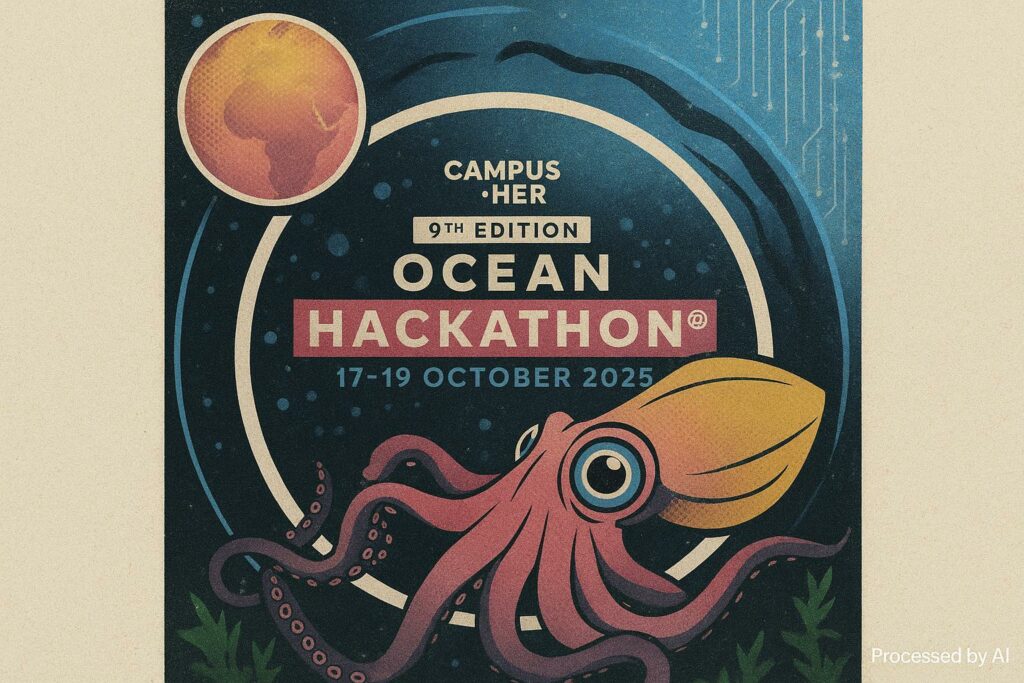A Gulf of Guinea Showcase for Maritime Data Science
The forthcoming ninth edition of the Ocean Hackathon, scheduled for 17–19 October 2025, will unfold in Pointe-Noire, the commercial heartbeat of the Republic of Congo. By hosting the first Central African leg of this French-inspired initiative, the Congolese authorities signal their determination to couple traditional port activity with the emerging knowledge-based blue economy. The choice of venue aligns neatly with the National Development Plan 2022-2026, which promotes economic diversification while maintaining environmental stewardship, a priority repeatedly underscored by President Denis Sassou Nguesso in recent public addresses.
From Brittany to the Bight: The Evolution of Ocean Hackathon
Launched in Brest in 2016 under the aegis of the Campus mondial de la mer, the Ocean Hackathon has gradually grown into a constellation of simultaneous contests on five continents (Campus mondial de la mer, 2024). Each satellite site works from the same philosophy: provide open or proprietary marine data sets, lock multidisciplinary teams in a 48-hour sprint, and encourage the birth of market-or policy-ready prototypes. Winning teams convene in Brest for a grand finale that awards seed capital and incubation support, offering visibility that smaller maritime nations often struggle to secure.
Why Pointe-Noire—and Why Now
Pointe-Noire already handles the lion’s share of the country’s hydrocarbon exports, yet its municipal authorities have long argued that the city’s geographical endowment can serve research as effectively as it serves crude logistics. The Ministry of Higher Education, Scientific Research and Technological Innovation, supported by the Ministry of the Economy and Planning, therefore championed candidature for the 2025 edition. Their joint brief emphasised the availability of coastal observation stations, fibre-optic connectivity and a growing cohort of coders graduating from the Université Marien-Ngouabi. According to Gilles Ebina, adviser to the Minister of Digital Economy, the hackathon is “a tangible demonstration that Congo is ready to move from extractive to cognitive value chains.”
A 48-Hour Laboratory of Diplomacy and Code
During the marathon, mixed teams comprising marine biologists, GIS specialists, software engineers and start-up founders will interrogate data sets ranging from chlorophyll concentrations to automatic identification system tracks. Organisers expect proposals that deal with illegal, unreported and unregulated fishing, coastal erosion modelling and smart-port optimisation. The event’s collaborative design answers calls made by UNESCO’s Intergovernmental Oceanographic Commission for “co-design of solutions” within the UN Decade of Ocean Science for Sustainable Development 2021-2030 (UNESCO, 2021). French, Belgian and Moroccan mentors—many alumni of prior editions—are slated to assist, highlighting the subtle but effective science diplomacy that often accompanies such hackathons.
Capacity Building and Youth Empowerment
By convening students next to seasoned professionals, the Ocean Hackathon fosters knowledge transfer that standard workshops rarely achieve. Rosalie Matondo, Minister of the Environment, Sustainable Development and the Congo Basin, argues that “the most enduring outcome will be a network of young Congolese experts able to translate ocean data into public-policy insights.” Her ministry has pledged scholarships for the top three Congolese participants to pursue oceanography courses in Brest, reinforcing the human-capital pillar of the country’s climate-resilience agenda.
Economic Upside Amid Energy Transition
International financial institutions estimate that sustainable ocean industries could contribute up to five percent of Congo-Brazzaville’s GDP by 2030 if adequate technological uptake occurs (African Development Bank, 2023). The Pointe-Noire hackathon thus emerges not as an isolated spectacle but as a policy instrument designed to accelerate innovation pipelines in aquaculture monitoring, maritime insurance and eco-tourism. Local chambers of commerce have already earmarked seed grants for post-hackathon incubation, hoping to convert at least two prototypes into revenue-generating ventures within twelve months.
Regional Resonance and Soft-Power Dividend
Congo-Brazzaville’s stewardship of this event also answers the African Union’s 2050 Integrated Maritime Strategy, which encourages member states to host knowledge forums that feed into a continental blue-economy narrative. Diplomats posted in Brazzaville view the hackathon as an instrument of soft power, raising the country’s profile in negotiations on maritime security and climate finance. As the French ambassador recently remarked, “co-innovation around ocean data may well deepen bilateral ties more effectively than many traditional cultural programmes.”
Toward Brest—and Beyond
The team that triumphs in Pointe-Noire will travel to Brest in December 2025 for the international final, offering Congolese innovators a stage shared with peers from Tokyo, San Diego and Cape Town. Whether the winning prototype tackles fisheries governance or port efficiency, its journey from the Gulf of Guinea to the western tip of France will underscore Congo-Brazzaville’s commitment to knowledge diplomacy. As preparations gather pace, the city’s skyline of cranes and container stacks is poised to double as a beacon for ocean-minded entrepreneurs, reminding observers that blue frontiers are no longer confined to latitude or longitude but defined by data, dialogue and daring.

